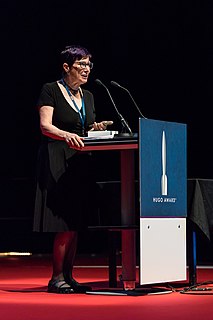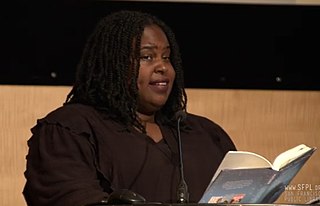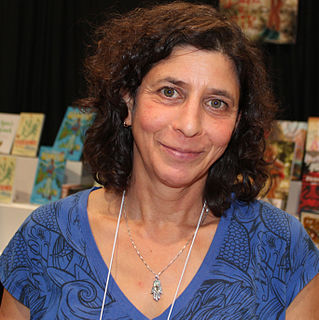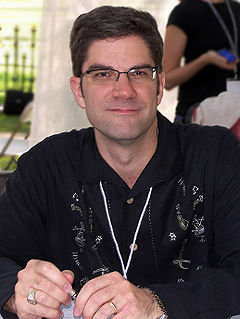A Quote by Ruth Glick
Unfortunately for me, most of the books I'd want to reprint were written for savvy publishers like Harlequin and Berkley who have held on to electronic rights. But I do have another option: Publish new e-books myself.
Related Quotes
Only idiots or snobs ever really thought less of 'genre books' of course. There are stupid books and there are smart books. There are well-written books and badly written books. There are fun books and boring books. All of these distinctions are vastly more important than the distinction between the literary and the non-literary.
Electronic books are ideal for people who value the information contained in them, or who have vision problems, or who like to read on the subway, or who do not want other people to see how they are amusing themselves, or who have storage and clutter issues, but they are useless for people who are engaged in an intense, lifelong love affair with books. Books that we can touch; books that we can smell; books that we can depend on.
For me, the most painful thing is the thought of shelves without books. This is the problem with the digital thing. I do not want to see it on electronic. I do not want to see all of those indices on Kindle. I don't want this physical object to disappear, because when it's there and it's present, it's continually suggesting new relationships in a way that an electronic index couldn't.
The current publishing scene is extremely good for the big, popular books. They sell them brilliantly, market them and all that. It is not good for the little books. And really valuable books have been allowed to go out of print. In the old days, the publishers knew that these difficult books, the books that appeal only to a minority, were very productive in the long run. Because they're probably the books that will be read in the next generation.
I am a product of endless books. My father bought all the books he read and never got rid of any of them. There were books in the study, books in the drawing room, books in the cloakroom, books (two deep) in the great bookcase on the landing, books in a bedroom, books piled as high as my shoulder in the cistern attic...In the seemingly endless rainy afternoons I took volume after volume from the shelves. I had always the same certainty of finding a book that was new to me as a man who walks into a field has of finding a new blade of grass.
Post-publication I have been surprised at the limited resources publishers have to promote books. I certainly knew that being a new author, I would have to do a lot of self-promoting, but it really has surprised me just how much I have had to do myself to make sure the books get into the hands of young people.
No one forces me, or any other writer, to sell a film option on the books. If you don't want to run the risk that the filmmakers may adapt your work in a way you don't like, then you don't sell the option. You know when you sell it that they will have to make some changes, just because film and TV are different media than books.
Teachers and librarians can be the most effective advocates for diversifying children's and young adult books. When I speak to publishers, they're going to expect me to say that I would love to see more books by Native American authors and African-American authors and Arab-American authors. But when a teacher or librarian says this to publishers, it can have a profound effect.
It was an easy decision for me which books to self-publish as ebooks. I got the rights back to two Avon books that I wrote at the start of my career. I paid to have these two books, 'Bold Conquest' and 'Wild Hearts,' scanned. When I got them back as documents, I had to clean them up and correct all the typos, etc.




































